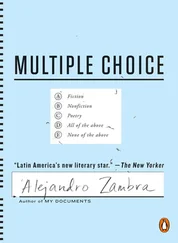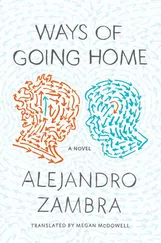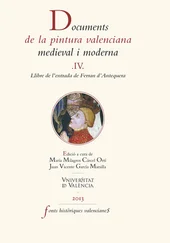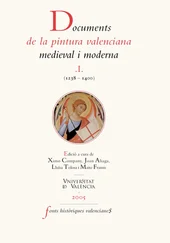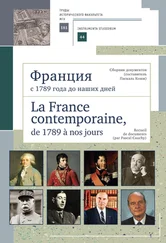Eventually we had to stop admiring Cóndor Rojas, and I also stopped going to my father’s games. Soon after that my father broke his right hand for the second time, and the doctor told him that he should never play soccer again.
Toward the end of 1990, something marvelous happened: after a decade of requesting a telephone line, we finally got one. We were given the number 557-3317. The morning they came to install it, I was home alone with my mother. The first thing she did was call one of her girlfriends, and then she told me that I should call one of my friends too, so I called Camilo. It was during a period when he had, without explanation, stopped coming to visit. He sounded happy, and I asked him to come see us. He appeared a few days later.
He told me he wanted to teach me how to talk to girls. I was fourteen by then, I had already kissed a few of them, but my relations with girls were still difficult. Camilo said that he’d recently met a girl called Lorena, and they’d gone out on a date and had slept together. He explained how one should treat a woman in bed (“You have to take her clothes off slowly — you can’t rush it”), and he offered to call Lorena, while I listened in from my mother’s room. “That way you can learn how a guy seduces a woman,” he said. He was not showing off — he really did want to teach me.
“Hi, Lorena, it’s Camilo,” he said, in a deep voice, when she picked up.
“Oh, how are you?” Her voice was sweet, sweet and a little hoarse.
“I’m good, but I need to see you.”
She was quiet for five seconds, and then she pronounced a sentence that I will never forget. “Well, if it’s already a necessity, we’ll just end it here,” she said, and hung up.
I went to the kitchen, put the kettle on, and made a cup of tea for Camilo. I think it was the first time I ever made tea for someone. I put a lot of sugar in it, which was what I understood you did when making tea for someone who was sad.
“Thanks,” Camilo said, with a gesture of resignation. “But it doesn’t matter. I’m happy. Next summer something very important is going to happen.”
“What?”
“Well, it won’t be summer for me. It’ll be winter.”
It was a perfect clue, but I still didn’t understand. How stupid.
“I’m going to France to see my father,” he said, the excitement clear in his face.
Now I jump ahead many years; more precisely, twenty-two. It’s October of 2012. I’m in Amsterdam, at a gathering of Chileans, most of them exiles, others students. And there is Big Camilo, Camilo Sr. Someone introduces us and when he hears my last name I notice the interest in his eyes. “You look like your father,” he tells me.
“And you look like Camilo,” I answer. He asks me some vague questions. We talk about the protests, about the shameful official refusal to allow Chileans abroad to vote in elections. We talk about Piñera, and suddenly we are compatriots spelling out the incompetence of their president. And then: “How is Hernán?” he asks me.
“Good,” I say, thinking that it’s been a while since I’ve talked to my father. I feel a little bullied, I don’t know why. I’m frozen. Then I realize: Camilo suffered so much because of his father. I feel that, in some dark and absurd way, by talking to Big Camilo I am betraying my friend, my brother. At the same time, I want to talk to this man, to understand who he is. I suggest that we meet up the next day.
We agree to meet at a Mexican restaurant on Keizersgracht. It’s a short walk from my hotel. I arrive almost two hours early so I can watch the Barcelona game. Alexis is on the bench. For decades now, soccer has been an individual sport for us Chileans. After what happened with Cóndor Rojas, not only were we out of Italy in ’90, we were also forbidden to participate in the South American qualifiers for the ’94 World Cup. There was nothing for us to do, for years, but focus on the local competition and on the individual triumphs and failures of our few countrymen who played outside Chile. We rooted for Real Madrid when Zamorano was there, and now we root for Barcelona, with Alexis, for as long as that lasts (if it lasts). And we have been and will be for whatever teams Mati Fernández or Arturo Vidal or Gary Medel or the others play for. We’re used to this way of watching: what do the goals that David Villa and Messi score matter to me? The only thing I care about is that they put Alexis in, and even if he doesn’t shine, may he at least not do something dumb.
Big Camilo also arrives early. I think, I’m going to watch a match with Camilo’s dad.
Everything I know about Big Camilo, about his exile, is what his son told me: that he was imprisoned in 1974, and that he had the good luck, so to speak, to get out of Chile in ’75. He went to Paris and soon met an Argentine woman, with whom he had two children. He tells me that he has been in Holland for fifteen years, first in Utrecht, then in Rotterdam, and now in a small town close to Amsterdam. Before long, like a policeman who doesn’t want to waste time, I speed up the investigation. I ask why Camilo was changed when he came back to Chile.
“I don’t know why,” he tells me. “He came to Paris to find me. He wanted us to go back to Chile together. He wasn’t interested in moving here, though I asked him to. He told me he was Chilean. I proposed that he come to study. I talked about our plans to settle in Holland. He told me he didn’t like studying, not in Santiago and not in Europe. It got more and more heated. He said horrible things to me. I said horrible things to him. And it became a contest, a competition of who could say the most horrible things. And I ended up feeling that he had won. He ended up feeling that I had won. All those years we’d been in contact, I’d thought about him, I’d sent him money — not much, but I’d sent it. Later, the first time I went back to Chile, we saw each other, we had lunch several times, but we always fought.”
“That was in ’92,” I say.
“Yes,” he replies.
Fifteen minutes into the second half, Alexis goes in; he’s offside a couple of times, but he plays a small role in Xavi’s 3–0 goal. Then Fàbregas scores, and then Messi again. Alexis misses an easy goal in the final minutes.
“What do you think of Alexis?” Big Camilo asks me.
“That he’s not better than Messi,” I say, and he smiles. I add that he was never much for scoring goals — in Chile he missed goals all the time — but that he was an exceptional winger. Suddenly I have that thought again: I’m talking about soccer with Camilo’s father, and I feel a kind of tremor. A very strange feeling. I talk about the 2006 Colo-Colo team. I talk about Claudio Borghi, about Mati Fernández, about Chupete Suazo, Kalule, Arturo Sanhueza. I talk about that terrible finals match against Pachuca, at the National Stadium. I feel awkward talking this way. Naive.
Later, I tell him that Camilo wanted him to be my godfather. He smiles, as if he doesn’t understand. And I don’t explain. Then he asks me to use the informal tú with him. I tell him no. He asks me if my father and Camilo used the informal with each other. I say yes. “Use it with me, then,” he responds.
But I don’t want to. I try to answer politely, but the only thing that comes out is a weak, murmured “No.”
I ask him why he and my father had fallen out. My dad never wanted to tell me or Camilo when we asked him: he always changed the subject. And no one else knew. I always assumed it was something very serious.
“It was toward the end of the season,” Big Camilo tells me. “We had it all sewn up, two — nil: I was playing center defense, there were only a few minutes left, and your dad was shouting like crazy: ‘Pass it, pass it back, pass it, Camilo!’ We’d been fighting about that for several games. He never let me make my own decisions. ‘Pass it, pass it back!’ In those days, the goalie was still allowed to pick the ball up with his hands when you passed it back to him.”
Читать дальше

